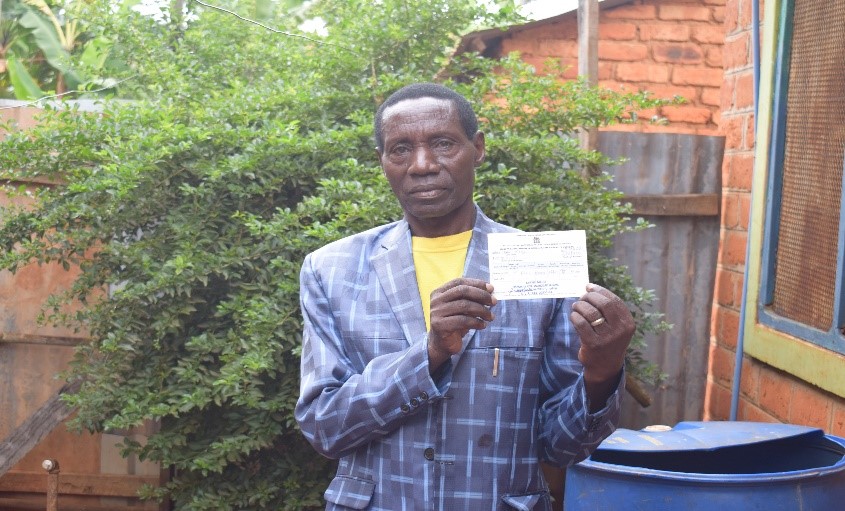Fighting fear of the coronavirus vaccine
Although older people have been disproportionately affected by the COVID-19 pandemic, take-up of the preventative vaccines amongst older people in Tanzania has been low, with clear messaging not reaching them and myths and anxiety around the vaccine high. With funding from UNICEF, we were able to help older people make an informed decision about the vaccine – including 72-year-old Gideon.

When we began this work in Tanzania, only 1.6% of those who had taken up the vaccine were over 60. In this large and diverse country, the right information was simply not reaching older people. Some live in remote areas with little exposure to the media, others may not be able to read or lack good translations of health information in their native tongue, they may be isolated or disabled, or simply overlooked and excluded by health programmes due to their age. Meanwhile, myths and misinformation spread easily through word of mouth.
With our partner HelpAge International, we were able to mobilise our home-based carers and active ageing clubs in Mwanza and Kigoma regions of Tanzania to open up the conversations about vaccines to older people, raise awareness of how the vaccines work and help ensure those who are ill or disabled have access to vaccination clinics. We held over 300 intergenerational ‘dialogue sessions’, where communities could come together to express their fears, doubts and questions about the vaccine and have them answered, with community leaders and other influential figures taking part.
One of the older people we met through our outreach programme was Gideon, a 72-year-old farmer who lives with his wife in the Kigoma region of Tanzania and who was very frightened by the pandemic – both due to the virus itself and the rumours around it.
“Me and my wife thought that it was the end of the world, and we are not going to live any longer when I heard that older persons are at higher risk of being affected by COVID-19 compared to other ages.
I remember, we were told that if someone gets vaccinated, they will turn into a zombie. Others said that if you get vaccinated your brain will no longer function and you will be controlled by computer systems throughout your lifetime. Others said that the vaccines will destroy the human reproductive system. This was very scary…”
Fortunately, we were able to explain the benefits and risks of the COVID-19 vaccine and dispel some of the myths and misinformation, enabling Gideon to make an informed decision about whether to get the vaccine.
“After taking the vaccination my neighbours were waiting to see how I would turn into a zombie or face all the consequences related to COVID-19 vaccine, but until this moment nothing wrong has happened to my health, I feel just as healthy as I used to be.
I am happy and it has increased my confidence to go out and tell other older people to take the vaccine. I thank HelpAge International and our Government for the right information that cleared my doubts and increased my confidence on taking the vaccines. I wish all fellow older people throughout this region could receive this kind of information so they can make the correct decision in taking the vaccine.”
Following this project, the Mwanza and Kigoma region of Tanzania went from being one of the regions with the lowest vaccine take-up in the country to one of the highest. Over 6,899 older people like Gideon attributed their decision to get vaccinated to our outreach programme, and our mobile vaccination clinics in remote and rural areas also meant that 230 homebound older people were able to get vaccinated despite their disability or illness. We’re now continuing this vital work in the Tanga and Simiyu regions of Tanzania, where we hope to reach thousands more older people.
 Follow us on social media
Follow us on social media
Keep seeing our stories or ask us a question - connect on Facebook and Twitter.
